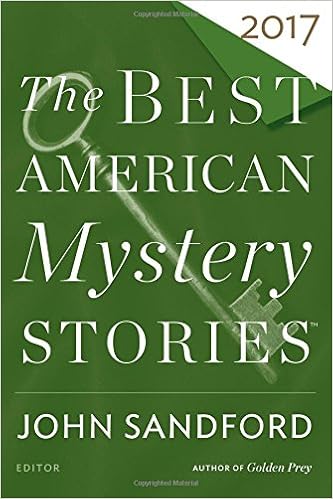First a heads up on happy information.
Recall earlier this year my story, The Sweet Warm Earth, was published in
F&SF. It was picked up by The Best
American Mystery Stories.
Well, it’s out. Here it is.
Okay, now that shameless self promotion is out of
the way, let’s talk about The Godwhale.
TG was published in 1974 by T. J. Bass.
Bass is one of those extremely interesting writers of which there’s not a lot
of material to read. There were a number of these in the sixties and seventies.
Bass’ isfdb page has two novels, a
novella or two and perhaps four short stories. I read TG back when it was first
published and read its prequel, Half PastHuman. I haven’t read HPH since so I can’t comment on it. Not that it
matters. TG stands on its own.
TG begins a few hundred years in the future where
there is a population issue but it is largely managed. The book follows the
life of Larry Dever, a human that gets caught in an accident where the lower
half of his body from the navel on down is amputated. He is put into suspension
which introduces him to some intervening cultural periods, setting the stage to
where he ultimately ends up. As he stays in suspension his genes become more
and more valuable, being more ancient and primitive. In effect, he becomes a
“wild type” human—a rich genetic source for future domestic crops (like humans)
that have lost variability over time.
Dever ends up several thousand years in the future
where there is nothing but the Hive, a continent spanning city-state containing
a trillion human beings who term themselves Nebishes. Nebishes have been
selected for this existence. They are small. Their calorie requirements are
low. They have four toes. The Nebish city state is completely consumed with its
own survival without regard to the cost to the rest of the world. Anyone who
does not contribute or fails at his role may forfeit their right to active life
and end up in suspension or demoted.
Bass has an interesting style. Reading him almost
feels as if you’re reading dispassionate journalism. This happens. That
happens. This person feels this. Truly horrible events are described without
heat. It is the events that he relates that have a tinge of horror but the
author doesn’t let the language be the vehicle. Not to say his prose is not
compelling. It is.
There’s a lovely scene where Dever is resuscitated
into the Nebish world in which, as a cripple, he cannot belong. But their
ethics are strong where other humans are concerned. He cannot belong but they
cannot kill him. Instead, they give him a painless poison in place of food. A
citizen follows him around telling him how he has ruined her day. How miserable
she is seeing him and he should just take the poison and die. Later, she is
traumatized when Dever assaults her, takes her food and escapes.
The Godwhale of the title does not show up for
some time. This is the plankton rake the Rorqual
Maru. She is a whale that has been repurposed into a floating harvest
factory. The Hive has left the entire outside world barren so she has no
plankton to harvest. She sends her compatriot, a small unit named Iron
Trilobite, to seek people for her to serve again. Instead, Trilobite becomes
incorporated into the Hive. Where he eventually meets Larry Dever.
There are a few primitive people (the Benthics)
that are stealing the sterile fruits of the Hive gardens. They survive by
living in the sea.
Bass brings Dever, the Benthics, Iron Trilobite
and the Rorqual Maru together deftly
and they mysteriously bring about a reseeding of the oceans. Which, of course,
puts them in conflict with the Hive for the same resources. This conflict occupies
most of the book.
Bass was very interested in the nature of
utilitarianism and over-population. One recurring theme in both of his books is
the devaluation of human beings. While Bass never really states this issue in
economic terms, in effect he proposes that as the number of humans increases to
the point of resource contention, the individual value of human beings goes
down.
While he never uses these terms, the Hive model is
essentially a zero sum game system and the Benthics a non-zero sum game system.
But this is not political ideology—the Hive is bound by its eternal struggle to
match needs and resources. Once it’s made that decision, the zero sum game is
the only game in town. The Benthics have scarcity but it’s driven by enabling
barriers to the resources, not the limits of the resources themselves. Once the
ocean is reseeded, the two methodologies square off and the Hive is the worse
for it.
I want to be clear here. TG is not an ideological
book. It’s a book with a strong plot and compelling characters that acts out
aspects of ideologies because of logical necessity, not because of the
invisible hand of the author. It really is an example of SF at its best: good
characterization, an interesting world and circumstances that force the
characters, and the reader, to grapple with complex ideas.
That said, there are some significant differences
between the point of view of 1974 and the point of view of 2017. This is a good
book but it is a book that is over forty years old. Two generations make a
difference. Some might be feel a little squeamish on women’s roles in the book.
Women are not trivialized as when presented under the auspices of Evil
Heinlein. (As opposed to Good Heinlein.)
Like Cordwainer Smith, The Godwhale and other T. J. Bass work occupy their own little
niche. I just wish there was more of it.

.jpg)


